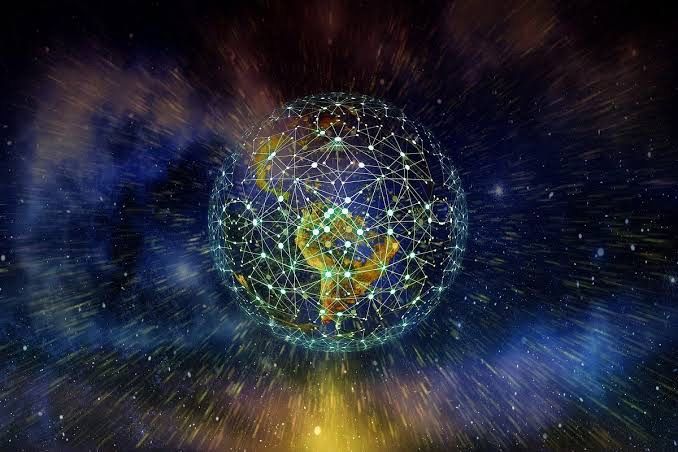Embracing Our Cosmic Role: Stewardship and the Evolutive Morality Perspective
Evolutive Morality's premise of embracing the role of stewards of the Earth, responsible for understanding, preserving, and enhancing our environment is an important one that is increasingly pertinent in our current times. This responsibility is often overlooked or dismissed due to the immediate pressures of society, economy, and
Evolutive Morality's premise of embracing the role of stewards of the Earth, responsible for understanding, preserving, and enhancing our environment is an important one that is increasingly pertinent in our current times. This responsibility is often overlooked or dismissed due to the immediate pressures of society, economy, and political structures. Yet, it is essential that we, as a collective humanity, begin to prioritize it.
As stewards of Earth, we have a unique role in the grand cosmic drama. The Earth is the only planet we know of that harbors life, making it a unique and precious entity in the universe. Our understanding of the planet, its ecosystems, and our effect on them has drastically improved over the past few decades. It's become clear that our actions have far-reaching impacts on the Earth's health and, consequently, on our own survival and well-being.
Sustainable living and environmental responsibility, as promoted by Evolutive Morality, are not just moral obligations, but survival imperatives. As we continue to push the boundaries of scientific understanding, we are increasingly realizing that our survival is inextricably linked to the health of the planet. Balancing our needs with those of the Earth's other inhabitants and ecosystems is a complex challenge, but one that we need to engage with fully and honestly.
Our understanding of the universe is constantly evolving, and this should be reflected in our moral and ethical codes, as Evolutive Morality suggests. This includes recognizing the intrinsic value of all life on Earth and our responsibility to protect it. We need to move beyond viewing the Earth as a resource to be exploited, and instead see it as our home that we need to nurture and protect.
Ultimately, the adoption of a stewardship role over the Earth requires a shift in perspective – one that values long-term sustainability over short-term gain, and one that recognizes our interdependence with the Earth and its ecosystems. This is a complex and challenging task, but one that is vital for our future.
As we progress in our understanding of the universe and ourselves, our moral framework must evolve alongside. Evolutive Morality provides a solid foundation for this evolution, urging us to embrace our role as stewards of the Earth and to live in harmony with our environment.
Tenets of Evolutive Morality: A Dynamic Code for Cosmic Stewardship
In the ever-evolving cosmos, morality and ethics must adapt and grow in tandem with our expanding knowledge and understanding. The principles of Evolutive Morality offer a way to navigate this dynamic landscape, providing a moral compass that is both rooted in reality and attuned to the wonder of existence.
This set of principles, grounded in respect for all life, recognition of our role as Earth's stewards, and commitment to personal freedom and self-realization, offers a guide for ethical decision-making in a complex and changing world. They acknowledge the importance of integrating scientific knowledge into our ethical framework, while also emphasizing the importance of universal compassion, long-term sustainability, and the recognition of our interconnectedness with the Earth and its ecosystems.
These tenets do not dictate a fixed path, but rather provide a flexible and evolving framework that encourages us to fulfill our responsibilities as active participants in the universe. They remind us that our actions have far-reaching impacts, and that we should strive to understand, preserve, and enhance the world we live in.
Below are the ten fundamental principles of the Evolutive Morality ethical code that guide us in embracing our unique role in the grand cosmic drama.
- Dynamic Evolution: Recognize that our understanding of the world and ourselves is constantly evolving, and our ethical systems must evolve with it. We should be open to updating our moral perspectives as new information becomes available.
- Respect for All Life: Recognize the intrinsic value of all life on Earth, from the smallest microorganism to the largest mammal, and our responsibility to protect it.
- Stewardship of the Earth: Embrace our role as stewards of the Earth, promoting sustainable living and environmental responsibility. We have a duty to preserve and enhance the world we live in for future generations.
- Human Dignity and Equality: Uphold the inherent dignity and worth of each individual, promoting empathy, respect, and equality as fundamental moral principles. Every person has a right to life, liberty, and the pursuit of happiness.
- Personal Freedom and Self-Realization: Empower each individual to seek their own meaning and purpose in life, without infringing upon the rights of others. We should respect and nurture the potential for human growth and evolution.
- Integration of Knowledge: Value scientific discovery and integrate these insights into our moral framework. Knowledge of the universe, of life, and of human nature should inform and shape our ethical decisions.
- Universal Compassion: Cultivate a sense of awe and humility in the face of the vastness and complexity of the universe, which can help us see beyond our immediate concerns and foster a sense of universal compassion.
- Long-term Sustainability: Prioritize long-term sustainability over short-term gain. Decisions should be made with consideration for their impact on the health and stability of the Earth and its ecosystems.
- Interconnectedness: Recognize our interconnectedness with the Earth and its ecosystems. Our survival and well-being are inextricably linked to the health of the planet.
- Responsibility to Act: Recognize that as active participants in the universe, we have a responsibility to act in a way that reflects these principles. Our actions should aim to understand, preserve, and enhance the world we live in.
This moral and ethical code provides a foundation for decision-making and behavior that respects the complexity and interdependence of life on Earth and our place within the cosmos.







